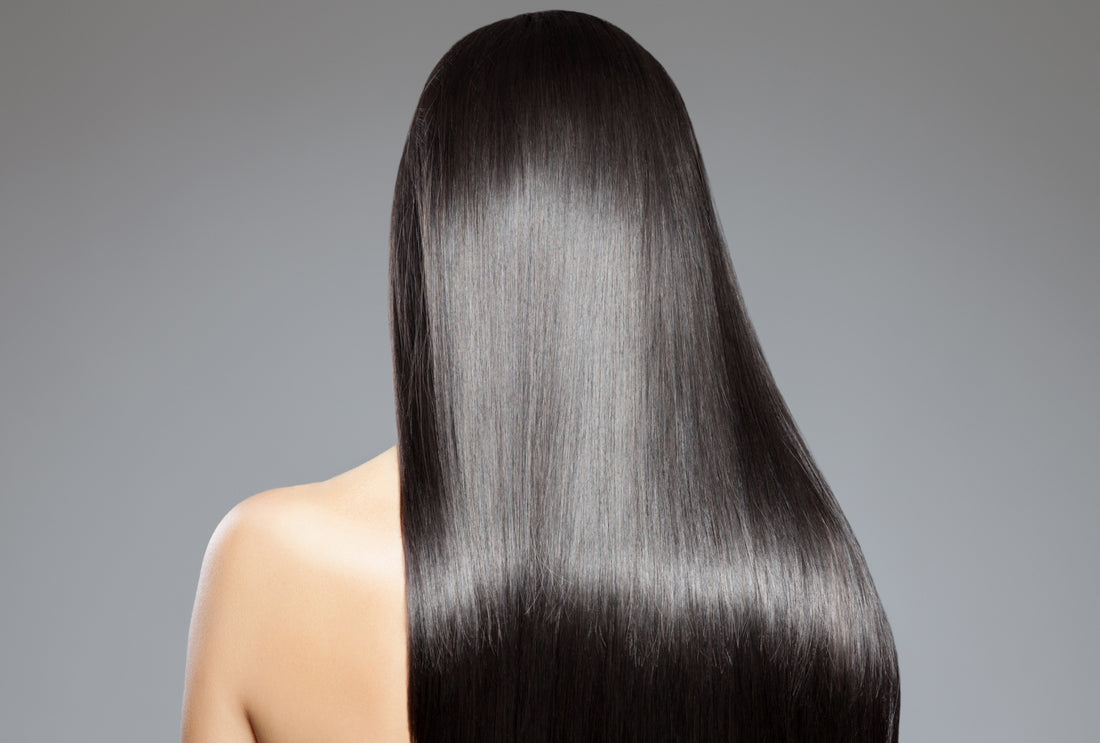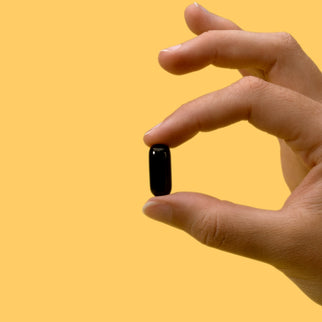If you’ve heard of omega-3s for supporting a healthy heart, you’re certainly not alone, but you may not know that you can see some of the benefits in the mirror too. Omega-3 can support your overall health and wellness in many ways, and those potential benefits extend all the way to the top of your head.
Adding omega-3 to your diet can provide multiple possible benefits for your hair, from maintaining a healthy scalp to supporting healthy hair growth.
What Is Omega-3?
Omega-3 fatty acids are healthy fats that make up building blocks for many of the cells in our bodies and play a key role in how these cells interact. By forming a foundation for our cells, they also help to support the healthy function of many important systems in the body, including the cardiovascular system, eyes, and brain.
There are three main types of omega-3 fatty acids:
- Alpha-linolenic acid (ALA), an omega-3 precursor
- Eicosapentaenoic acid (EPA)
- Docosahexaenoic acid (DHA)
ALA is found in plant oils, like canola and flaxseed oil, as well as in nuts and seeds, but don’t start packing your kitchen with plant oils and seeds just yet. DHA and EPA are the two most beneficial forms of omega-3 fats, as they offer the most potential benefits. However, these two are also harder to come by in a standard diet, as they are primarily found in marine foods.
How Omega-3 Benefits Your Hair
Omega-3 offers many potential benefits for your overall health and wellness, but healthy hair is a part of the list. Consuming omega-3 regularly might provide a few of the following benefits for your hair.
1. May Support Healthy Hair Growth
Whether you want longer hair or your hair doesn’t seem to be growing the way it used to, growing out your hair can be a frustrating experience.
Research shows that having gaps in your diet, including missing out on key omega-3s, can contribute to the look of thin and unhealthy hair — so getting more omega-3s may work to support healthy hair growth.
More research is needed to determine whether omega-3 can support hair growth for those experiencing hair loss, but current research is promising. Of course, if you have concerns about your hair growth, consult a dermatologist.
2. May Support a Healthy Scalp
The health of your hair and the health of your scalp go hand in hand. After all, your scalp is the foundation for your hair strands and is vital to healthy hair growth. Fortunately, omega-3s may provide the support you hope for in healthy hair. Omega-3s can help to support a healthy skin barrier, which plays an important role in holding moisture in the skin and scalp.
A dry, irritated scalp can be one of the first obstacles to hair growth. By holding moisture in the scalp, the skin barrier helps to keep the scalp healthy and hydrated, supporting a positive environment for hair growth.
3. May Promote Hydrated Hair
Dry hair is more susceptible to damage, like breakage and split ends. Meanwhile, hydrated hair is almost synonymous with healthy hair. Hydrated hair is more flexible, making it more resistant to breakage, damage, and even heat damage.
By supporting a healthy and moisturized scalp, omega-3 can also help to keep your hair hydrated. Your scalp is responsible for producing an oil called sebum which moves down the length of hair to keep it flexible and protected against the elements. When your sebum production is balanced, you can bask in silky, hydrated hair.
4. May Support Shiny Hair
By supporting the overall health of your hair, omega-3 can keep your hair looking shiny and smooth.
With healthy sebum production, your hair strands can stay coated by this naturally protective oil. Healthy oil production also means you won’t need to use as much product in your hair to tame frizz or combat dryness, so it’s a win-win.
Where Can You Find Omega-3s?

Although many foods are labeled as being high in omega-3, few have DHA or EPA omega-3s, which are the two most valuable forms of this important fatty acid. You can find the most valuable DHA and EPA omega-3s from three key sources.
Eating Fish
Fatty fish is the most common source of DHA and EPA omega-3s. Omega-3-rich fish include salmon, mackerel, herring, sardines, and tuna. Experts recommend consuming two servings of 3 ounces of fish per week for supporting overall cardiovascular health, but of course, this amount of omega-3 is great for supporting other areas of your health and wellness also.
However, cooking fish is not always the most enticing option, especially for people with a tight schedule or those who just aren’t fans of being in the kitchen. Fortunately, there are a couple of alternatives.
Fish and Krill Oil Supplements
Fish oil supplements offer a far more convenient option for those who prefer not to cook fish. Fish oil supplements are often found in a capsule or in a bottle of the oil itself. A similar option is krill oil, which is made from the tiny little pinkish-red crustacean creatures in the ocean. Krill oil is a slightly more expensive option with similar benefits.
However, both krill oil and fish oil come with their drawbacks. Number one, many people with seafood or shellfish allergies aren’t able to rely on these supplements. Number two, there are many people that just don’t like the taste of fish. If you’ve ever tried a fish oil supplement, you know that it can leave you with a fishy aftertaste or, worse, ghastly fish burps.Fortunately, you aren’t out of options — algae is an effective alternative.
Algae Supplements

Algae supplements offer more than a few advantages over fish oil supplements without the same drawbacks. Algae supplements are great for virtually anyone, regardless of diet or lifestyle. After all, algae is entirely plant-based, making it great for anyone on a plant-based diet. Plus, because algae is not seafood or shellfish-based, seafood allergies are not a concern.
All of these benefits come with the refreshing fact that you don’t have to worry about any of those cursed fishy burps. Even for those who can tolerate fish, algae supplements are the better option, as the omega-3s in algae are absorbed 1.7x better by the body compared to fish or krill oil. Oh, and algae supplements are just plain better for the environment too.
All you need is one iwi life omega-3 supplement a day to put yourself on track for healthy hair.
How Else Can You Promote Healthy Hair?
As with any nutritional supplement, omega-3 is just one piece of a healthy haircare routine. While taking omega-3s can support healthy hair, it’s important that you establish healthy hair care habits so that your mane can truly live up to its potential.
Here are some valuable habits you can adopt for healthy hair:
- Avoid using heat tools on your hair, or make sure to use a heat protectant if you do
- Wash your hair regularly, but avoid overwashing it, which can dry out your strands
- Stick to haircare products free of harsh chemicals like alcohols
- Use a conditioner or leave-in treatment to lock in moisture
- Be gentle when you brush your hair and avoid pulling at your hair
- Maintain a healthy diet with a variety of nutritious foods
Support Healthy Hair with iwi life
Maintaining a healthy head of hair can be time-consuming, but adding an omega-3 supplement into your diet is a low-effort way to support healthy, hydrated hair strands.
Even if your number one health and wellness priority is a full head of vibrant, healthy hair, omega-3s provide many potential benefits beyond promoting healthy hair, and iwi life makes it easy to access them. With a once-a-day supplement, you can obtain your daily needs for DHA and EPA omega-3s without a second thought.
Explore our complete family of omega-3 algae supplements and experience all the potential benefits that come with each of the different types.
Sources:
Fish and Omega-3 Fatty Acids | American Heart Association
Diet and hair loss: effects of nutrient deficiency and supplement use | PMC



















